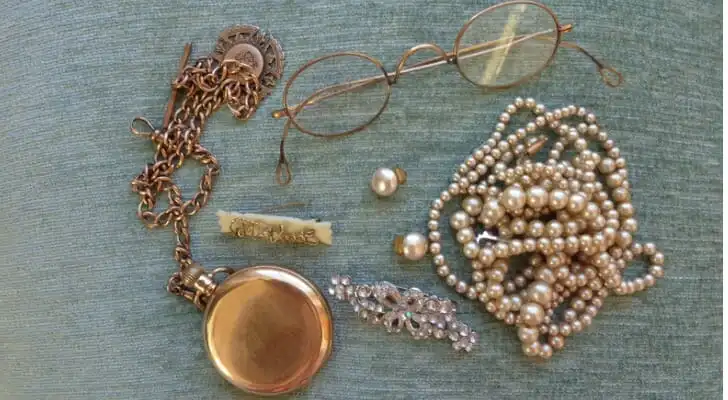Assets inherited by one partner in a marriage can be considered separate and owned only by that partner. However, in the event of a divorce, inheritances that are commingled with marital assets can be ruled as marital property jointly owned by both partners and, therefore, subject to division. The difference is how and whether the inherited property is shared between the spouses. If it’s kept strictly separate during the union, it’s likely to be considered still separate if the union dissolves. State laws govern the way inheritances are treated in marriage. These laws and practices vary widely between states, so the services of a financial advisor can be extremely helpful.
When an Inheritance Can Become Marital Property
If you’re married and receive an inheritance, then there’s a chance that it could be considered marital property immediately upon your ownership. There are two primary ways that an inheritance can become marital property. That is, if your state observes community property or commingling property rules. Here is how each works.
1. Community and Separate Property in a Marriage
The concepts of community property and separate property are central to understanding how inheritances will get handled in marriage. Community property is jointly owned by both spouses and is subject to equal division in the event of a divorce. Separate property is owned by one spouse and will not be divided during divorce proceedings.
Any income or assets earned or acquired during a marriage generally are considered community property to which both spouses have equal rights. Inheritances, however, are a special case. It’s possible to maintain the separate ownership of an inheritance, including one received before or after the marriage begins, as long as the inheritance is not commingled with marital property.
2. Commingling Property in a Marriage
Commingled funds or assets are jointly owned by both partners. When assets or funds are commingled, they are available for both partners to use, are used to pay expenses incurred by the couple or the non-inheriting partner, or include contributions from both partners.
For example, if a cash inheritance is deposited into a couple’s joint checking and both partners deposit funds and write checks on the account, the inherited funds have been commingled. Then the inheritance is not separate but jointly owned and will be divided during divorce.
However, if the cash inheritance is deposited into a separate account that only one spouse can access, it is still separately owned and not subject to division. The inheriting partner also may not use inherited funds to pay for joint expenses if the intent is to keep the funds separate.
In the case of inherited property such as a house, avoiding commingling has additional wrinkles. For example, if both spouses live in the house, it will be considered joint marital property.
To keep a home separate, the inheriting spouse would also have to avoid spending any joint funds on repairs and upkeep. If it’s used as a rental property for income, the rental income would be kept separate from other income received by the pair or the inheritance might be considered joint property.
How Intent Works With Inheritances

The intent is important when a divorce court is considering whether an inheritance is joint or separate property. A spouse who wants to keep an inheritance separate will retain documents, such as account statements, showing how inheritance funds were spent, that will demonstrate the intent is to keep the funds separate. Sometimes documentation may take the form of personal communications.
For example, if the spouse of someone who inherited a house personally performed necessary repairs on the house, this injection of sweat equity could cause the house to be considered joint property. However, if the inheriting spouse could document that repairs were performed only over his or her objections, the house could remain individual property.
An inheritance may become jointly owned through a process called transmutation. A transmutation agreement is a post-nuptial agreement, and the effect can occur gradually, so that at one point inherited property is entirely separate, then partly joint and then entirely joint.
If separately owned inherited property is accidentally commingled and becomes jointly owned marital property, it may be possible to reverse the commingling. It will require presenting the court with evidence that commingling was in error and that the intent all along was to keep the property separate.
How Prenups and Postnups Affect Inheritances in a Marriage
One way to document the intent to keep an inheritance separate is to have both partners sign a pre-nuptial or post-nuptial agreement. These legal documents can be drafted before or after a marriage begins and detail exactly how marital property, including property owned when the marriage begins, as well as inheritances received later, will be divided.
How to Protect an Inheritance From Becoming Marital Property
One common way to preserve an inheritance as separate property is to keep inherited assets in accounts held solely in the inheriting spouse’s name. Opening a new individual account for inherited cash or investments can help distinguish those funds from marital assets.
Avoid using inherited money to pay for joint household expenses or shared debts. Once inherited funds are used for the benefit of both spouses, they may be treated as commingled and subject to division in a divorce.
Inherited real estate should also be titled carefully. If the property is placed in both spouses’ names or marital funds are used for mortgage payments, renovations or upkeep, it may be treated as marital property. Keeping the title solely in the inheritor’s name and using separate funds for expenses may help preserve its separate status.
Trusts can also be used to receive or hold inherited assets. Assets held in a properly structured trust may remain separate from marital property and provide an additional layer of control over how the inheritance is managed and distributed.
Maintaining records is another important step. Keeping documentation that shows the source of inherited assets, account statements and how funds were used can help demonstrate intent to keep the inheritance separate if questions arise later.
Bottom Line

Unlike most assets acquired during a marriage, an inheritance can remain separate property rather than becoming jointly owned. To keep it that way, the inherited assets generally need to be kept apart from marital property and not used for shared marital expenses. Because inheritance laws vary by state, an attorney familiar with local law is the most reliable source of guidance on this issue.
“Whether you live in one of the 41 common law states or a community property state, commingling your inheritance with your spouse (or future spouse) will render it joint property. It can be difficult to keep certain assets, such as a family home or a bank account that’s used for shared expenses, entirely separate. Consulting a local attorney upon any type of inheritance is generally a smart move,” said Tanza Loudenback, CFP®.
Tanza Loudenback, Certified Financial Planner™ (CFP®), provided the quote used in this article. Please note that Tanza is not a participant in SmartAsset AMP, is not an employee of SmartAsset and has been compensated. The opinion voiced in the quote is for general information only and is not intended to provide specific advice or recommendations.
Tips for Handling an Inheritance
- If you anticipate receiving an inheritance during a marriage and want to maintain it as separate property, consider working with a financial advisor. Finding a financial advisor doesn’t have to be hard. SmartAsset’s free tool matches you with vetted financial advisors who serve your area, and you can have a free introductory call with your advisor matches to decide which one you feel is right for you. If you’re ready to find an advisor who can help you achieve your financial goals, get started now.
- Protecting your retirement savings after a divorce may not be at the top of your mind when you are going through the process of splitting up with your spouse. Still, your financial well-being matters, and that includes making sure that your retirement savings are protected.
Photo credit: ©iStock.com/cupcakegill, ©iStock.com/NickyLloyd, ©iStock.com/JackF
